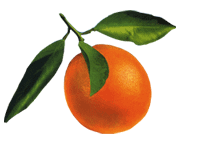26 Dec Pessimism By Any Other Name Is Not Pessimism
Was it visions of sugarplums that made my Christmas Eve day commute to work so sweet? Or was it President Bush’s “pardon” for all us Federal workers one half day of freedom for the upcoming holiday? No, as I looked around the subway car I realized everyone was contentedly reading the Health section of the Washington Post. More specifically, they were reading The Happy Heretic, an article about Dr. Martin Seligman’s new book, Authentic Happiness. Wellbeing saturated the underground air.
With Christmas just past and New Year’s up next, the burden of marking time (more specifically, marking this point in my life) is great. Happiness is a commodity, to be bought, sold, and listed. It is a benchmark for our success. My discomfort is palatable this time of the year. Something doesn’t fit right: the week between these holidays—the countdown to the new year (as if this point in time was a natural rather than a social construct) and the pressure to create (let alone live by) a checklist of New Year resolutions. Christmas and New Year’s beg me to consider my happiness.
Seligman, who is the former president of the American Psychological Association, feels that when it comes to this state, Americans have it “dead wrong.” True happiness is not fleeting pleasure (and in this gift-giving season, who but the staunchest curmudgeon is not prone to this affliction?). To counter this he has developed what he calls Positive Psychology: to be truly happy people must develop more durable strengths—integrety, critical thinking, street smarts, love of beauty, kindness, and perseverance. While daily life (both personal and global) can get you down, drawing on your inner strengths to move through the morass is his key. Antisthenes, who said “I would rather go mad than experience pleasure” would surely have something cynical to say about this.
Despite my reluctance, Seligman’s psychology forced to consider my lot in life. I was voted “Most Pessimistic” in my high school graduating class. True, my early life taught me to be extra cautious. But was this who I really was?
In the intervening years, I rarely thought much my “condition.” Usually, I pondered my reactions to the world with a quick swipe-of-my-hand across the nearby air and the passing acknowledgement: “Well, I am a pessimist afterall.” But recently, a coworker shocked me by declaring in a closed door meeting that I was an optimist! My cynicism, he felt, paled next to his fatalism. When I actually absorbed his declaration I was even more surprised to realize he was right. Somehow I had become an optimist. How could I have miscalculated my personality to this degree?
I had just told my office mate that despite the often uncomfortable intensity of a recent project, I’d learned quite a bit. His words forced me to look critically at the challenges of organizational society. I was surprised to realize I saw them as opportunities to exercise new coping and managerial skills. And, of course, there’s ample opportunity.
Apparently, even back in high school I was drawing on my inner abilities to rise above my notions of the world. Winning that “honor” was only a partial and most clearly an imperfect reflection of my self-perception. When I looked down that list of Most “this” or Best “that,” I was scanning for “opportunity” and this category seemed to be the only one I had a chance to win. And when I told everyone “I’m sure I won’t get it,” it clinched my victory. Yet it also helped cement a mindset that lasted for a long time.
Happiness, from Seligman’s vantage point, isn’t so much about short term pleasure, it’s about the type of gratification Thomas Jefferson and Aristotle wrote about. And he feels, rather than pursuing these more important goals, most of us are just “fidgeting until we die.” This is why I refrain from New Year’s Resolutions. Change doesn’t happen at the stroke of midnight. It requires a lot more effort from me.
And after taking his Authentic Happiness Signature Strengths Survey (registration required, but it’s free), I now have empirical proof of my mental shift. Of course, the Web site states I can best interpret the results by reading his book. However, let me use my inner drive to see what I can glean from this on my own.
My number one strength is Creativity, Ingenuity, and Originality. “Thinking of new ways to do things is a crucial part of who you are. You are never content with doing something the conventional way if a better way is possible.” I scored as high or higher in this area than 97% of all Web site users, 96% of all Post-college grads, and (most interestingly) 94% of those in Zip Code 200xx. That’s all of Washington, DC! This might explain a lot of what goes on in this town.
Other strengths I scored solidly on include Judgement, Critical Thinking, and Open-Mindedness (“Thinking things through and examining them from all sides are important aspects of who you are. You do not jump to conclusions, and you rely only on solid evidence to make your decisions. You are able to change your mind.”) and Bravery and Valor (“You are a courageous person who does not shrink from threat, challenge, difficulty, or pain. You speak up for what is right even if there is opposition. You act on your convictions.”). In both categories I score above 90% of my peers.
Alright, alright already. Please. I am humbled by your applause. I do sound centered, don’t I? Ok, well, I already knew all of this—not in these glorious terms but somewhere between the perceived pessimism of my youth and the hopeful wisdom of my old age (most of us know who we are, even if we’re not prepared to admit it). I am a process-oriented person. And I get it, Dr. Seligman. I resolve not fidget next year.
My brand of cynicism: not the negative notion of distrust. It’s more an acceptance that motives of others will sometimes be alien to one’s own belief system. Rather than constantly being shocked by the behavior of others, I’ve come to accept that I will not always understand what motivates every person I come in contact with. Back >>




Donna
Posted at 11:28h, 04 JanuaryGreat entry. Isn’t it funny that you are doing the reverse of what we accept as standard? Instead of going from optimistic young man to realistic, even pessimistic older, wiser man, you switched it…
I’m off to take the test…